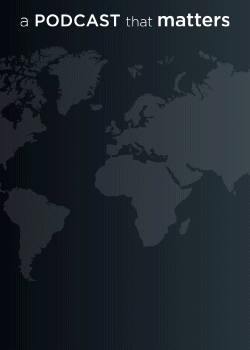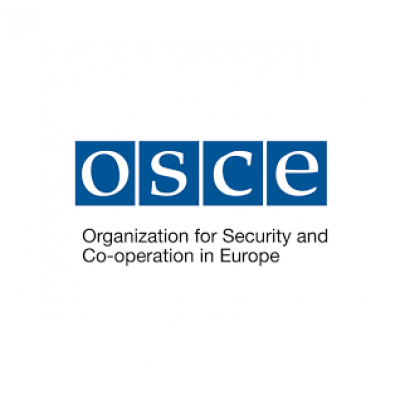Details
Description
Background
UN Women, grounded in the vision of equality enshrined in the Charter of the United Nations, works for the elimination of discrimination against women and girls; the empowerment of women; and the achievement of equality between women and men as partners and beneficiaries of development, human rights, humanitarian action and peace and security. Placing women’s rights at the center of all its efforts, UN Women leads and coordinates United Nations system efforts to ensure that commitments on gender equality (GE) and gender mainstreaming translate into action globally. It provides strong and coherent leadership in support of Member States’ priorities and efforts, building effective partnerships with civil society and other relevant actors.
In line with the European Council’s decision of March 2020 to open accession negotiations with the Country, the Sida-funded project “Gender Equality Facility” (GEF) aims at supporting the Government of North Macedonia in transposing the EU Gender Equality acquis, strengthening the effective implementation of national and international legal frameworks on gender equality and women’s rights, mainstreaming gender equality into EU integration and planning processes for pre-accession assistance, and strengthening institutional mechanisms for gender equality in line with EU standards. Thereby, GEF supports institutions to correctly align with the EU Gender Equality acquis. The intervention will also address challenges in implementation of laws and gender equality policies by providing support for enhancing coordination and monitoring of gender equality policies and measures. In the medium to longer-term, and in line with the EU Gender Equality Strategy 2020-2025 and the Principles of the EU Gender Action Plan III (2021-2025), the Project aims to secure implementation/application of gender equality legislation, policies and standards through policy dialogue, technical expertise and guidance, development and sharing of good practice, and strategic partnerships and cooperation.
The main partners of the Project are the Secretariat for European Affairs (SEA, main project beneficiary), Instrument for Pre-accession Assistance (IPA) structures, the Equal Opportunities Department at the Ministry of Labor and Social Policy (MLSP), and National Gender Machinery institutions.
The UN Women Office in North Macedonia is seeking to recruit an International Consultant to conduct training needs assessment of IPA units, SEA, gender mechanisms, and other relevant institutions and structures, with a specific focus on gender mainstreaming in planning and revision processes related to the National Plan for the Adoption of the Acquis (NPAA). The work of the International Consultant will be supported by a National Consultant with specific local knowledge of gender equality issues, government structures, the EU accession process, and sector governance in North Macedonia.
Duties and Responsibilities
Under the overall supervision of the UN Women GEF Project Manager, and the direct supervision of the GEF Output Coordinator for Result 2, and in collaboration with national gender expertise, the International Consultant will be responsible for performing the below key activities:
Develop, in English, methodology and workplan that will include an outline of the timeline of data collection and type of information needed from the IPA structures, gender institutional mechanisms and relevant institutions.
Submit the methodology and workplan to the UN Women GEF Project Manager and GEF Output Coordinator for Result 2 for comments and approval.
Review NPAA documents, as well as relevant background literature, including reports, programming documents, analyses and similar, as well as recommendations on gender mainstreaming in the EU accession context in North Macedonia.
In close collaboration with the National Consultants, prepare the assessment tools for conducting the training needs assessment on NPAA planning and revision processes, defining data collection and data analysis methods and timeline.
Submit the assessment tools to the GEF Project team for approval.
After approval of the assessment tools, support the National Consultants in data collection from identified relevant stakeholders, focusing on gender mainstreaming in NPAA processes.
Analyse the data collected from relevant identified stakeholders and develop a consolidated assessment report, including other gender gaps identified in the desk research, with specific recommendations.
Submit the draft report to UN Women GEF team for review.
Support the National Consultants in conducting a validation workshop with SEA, IPA structures, the gender mechanism, other identified relevant stakeholders and structures, and the UN Women GEF project team.
Draft and submit the proposed Concept Note, agenda, and materials to the UN Women GEF Project team for comments and approval.
Support conducting the workshop.
Provide comments on the workshop notes.
Based on the results of the validation workshop, in collaboration with the National Consultants, make any required adjustment to the final Training Needs Assessment Report for the NPAA processes and submit it, in English, to the UN Women GEF Project team for approval.
In the final report, provide a set of recommendations for capacity development for gender mainstreaming in NPAA structures and processes, in accordance with training needs assessment findings.
Additionally, propose recommendations on strengthening gender mainstreaming across NPAA processes.
Submit final report on the assignment to UN Women.
Main expected outputs/deliverables:
Deliverables
Maximum expected days
Timeline and due dates
Methodology and workplan – finalized and approved by UN Women.
2
By 23 November 2021
Assessment tools for conducting the training needs assessment on NPAA processes, defining data collection and data analysis methods and timeline – approved by UN Women.
5
By 3 December 2021
Draft training needs assessment report (to be submitted in English, to the UN Women GEF Project team for approval).
14
By 15 January 2022
Post-validation workshop materials, final notes and completed evaluation forms from workshop participants - reviewed and approved by UN Women.
3
By 30 January 2022
Consolidated assessment report, submitted to and approved by UN Women with specific recommendations, including:
Set of recommendations for capacity development for gender mainstreaming in NPAA processes, in accordance with training needs assessment findings.
Recommendations on strengthening gender mainstreaming in NPAA processes.
Specific suggestions for capacity development training modules
5
By 15 February 2022
Brief final consultancy report - submit for UN Women’s approval.
1
By 28 February 2022
Total
30
Reporting
Under the overall supervision of the GEF Project Manager and the GEF Project team at UN Women Skopje Office, the International Consultant will develop and deliver the above listed deliverables in accordance with the indicative timeframe.
All deliverables of an acceptable standard and quality should be submitted to the UN Women and in languages as specified above.
Competencies
Core values:
Respect for Diversity
Integrity
Professionalism
Core competencies:
Awareness and Sensitivity Regarding Gender Issues
Accountability
Creative Problem Solving
Effective Communication
Inclusive Collaboration
Stakeholder Engagement
Leading by Example
Functional Competencies:
Knowledge Management and Learning
Shares knowledge and experience
Seeks and applies knowledge, information, and best practices from within and outside UN Women
Development and Operational Effectiveness
Demonstrates excellent written and oral communication skills.
Communicates sensitively, effectively and creatively across different constituencies
Demonstrates very good understanding of and experience in communications and outreach/advocacy
Ability to perform a variety of standard specialized and non-specialized tasks and work processes that are fully documented, researched, recorded and reported
Ability to review a variety of data, identify and adjust discrepancies, identify and resolve operational problems
Uses Information Technology effectively as a tool and resource
Leadership and Self-Management
Focuses on result for the client and responds positively to feedback
Consistently approaches work with energy and a positive, constructive attitude
Remains calm, in control and good humored even under pressure
Proven networking skills and ability to generate interest in UN Women’s mandate
Identifies opportunities and builds strong partnerships with clients and partners
Required Skills and Experience
Education/Academic Qualifications:
Master’s degree in Law, Public Administration, Gender Studies, European Studies, Social Sciences, Development Studies, or related fields.
Work Experience:
At least 7 years of experience in providing technical support to governmental entities for implementing human rights, gender equality and/or gender mainstreaming in different sectors;
A minimum of 4 years of developing and applying gender-sensitive/rights-based training, capacity building, analysis, training needs assessment tools and methodologies, or similar;
Proven knowledge of EU legal and policy framework for gender equality;
Experience in engaging in public administration reform, public management streamlining and modernization will be considered as an asset;
Previous engagement in governance reform projects in the context of the Instrument for Pre-Accession, including gender review of national strategies, policies, and programming documents, in countries of the Western Balkans will be considered as an advantage.
Language requirement:
Fluency and excellent writing skills in English, both oral and written. All deliverables are to be prepared and submitted in English.
Other skills:
Good computer skills in Windows environment, knowledge of internet communication and command of MS Office applications (Word, Excel, Power Point), Zoom and MS Teams.


